Current Grantees

Abraham Cullom | IIE-GIRE 2021 Fellow
IIE-GIRE Fellow at Delft University of Technology, the Netherlands
Home Institution: Virginia Tech
Home Faculty Advisor: Amy Pruden
Research Project: Residual Disinfectants’ Effects on In-Building Antibiotic-Resistant Opportunistic Pathogens in Dutch Water
Field of Study: Civil Engineering
Abraham Cullom is a 3rd-year Ph.D. student at Virginia Tech, who is co-advised by Drs. Amy Pruden and Marc Edwards. He is the recipient of a Via Scholarship from the Via Endowment Program and an NSF Graduate Research Fellowship. He received his B.S. in Civil Engineering from the University of Pittsburgh, where he was a Chancellor’s Scholar. His cross-disciplinary projects examine the effects of in-building plumbing parameters such as secondary disinfectants and pipe materials on antibiotic resistance, opportunistic pathogens, and microbial ecology. More broadly, he is interested in applying insights from microbiology, bioinformatics, and genetics to reduce disease risks in drinking water.
Antibiotic resistant opportunistic pathogens (AR-OPs) like Acinetobacter baumannii are a global health threat because of their antibiotic and disinfectant resistances, and their ability to grow in building plumbing. Secondary drinking water disinfectants may select for these AR-OPs and alter the microbial communities living within building plumbing. Dutch drinking waters typically forgo secondary disinfectants, so A. baumannii and the wider building plumbing microbiomes may be more sensitive to the selective pressures generated by residual disinfectants. This study will use antibiotic-resistant and sensitive strains of A. baumannii to evaluate how chlorine and monochloramine influence the adaptation and success of AR-OPs and affect the plumbing microbiome in simulated Dutch warm water plumbing in order to elucidate how secondary disinfectants influence the safety of building plumbing microbiomes.

Elizabeth Mamros | IIE-GIRE 2021 Fellow
IIE-GIRE Fellow at TU Dortmund, Germany
Home Institution: University of New Hampshire
Home Faculty Advisor: Brad Kinsey
Research Project: Patient Specific Trauma Fixation Hardware via Rapid Prototyping Sheet Metal
Field of Study: Mechanical Engineering
Elizabeth Mamros is a third year Ph.D. student at the University of New Hampshire (UNH) under Professors Brad Kinsey and Jinjin Ha. She completed her bachelor’s degree with honors at Penn State Behrend in 2018 and her master’s degree at UNH in 2020. Her doctoral research focuses on novel sheet metal forming processes and manufacturing heterogeneous biomaterials for trauma fixation applications. She is a member of the Society of Women Engineers, Tau Beta Pi, and the American Society of Mechanical Engineers. With the goal of becoming a faculty member after graduation, Elizabeth enjoys mentoring undergraduates in the laboratory and leading K-12 STEM outreach events at local schools.
The IIE-GIRE program will allow Elizabeth to travel to Dortmund to research a novel multi-tool incremental forming process using a one-of-a-kind machine constructed by the Institute for Forming Technology and Lightweight Construction (IUL). She will investigate how to control the local deformation and resulting residual stresses regarding stress superposition, i.e., combined, simultaneous deformation loading, during the forming process to manipulate the final part properties according to the intended application. This research is critical to overcoming challenges related to rapid prototyping of patient-specific components such as conflicting strength and weight requirements in various regions of the implant.
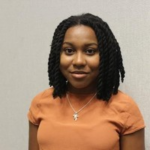
Abriana Stewart-Height | IIE-GIRE 2021 Fellow
IIE-GIRE Fellow at Commonwealth Scientific and Industrial Research Organisation Robotics & Autonomous Systems Group, Australia
Home Institution: University of Pennsylvania
Home Faculty Advisor: Daniel E. Koditscheck
Research Project: Gait Recovery Strategies for Legged Robots After Peripheral Damage
Field of Study: Electrical & Systems Engineering
Abriana Stewart-Height is pursuing a PhD in Electrical & Systems Engineering at the University of Pennsylvania (UPenn) under Dr. Daniel E. Koditschek. Prior to coming to UPenn, she worked as a Systems Engineer Intern for the United States federal government and a Space Systems Company Technical Intern for Lockheed Martin. She received a Bachelor of Science in Electrical Engineering at the University of Maryland (UMD) in May 2017, where she did research under Dr. Hugh Bruck in the Advanced Manufacturing Laboratory. Her research focuses on how multi-legged systems can adapt to unanticipated peripheral damage for the advancement of current technologies utilized in disaster recovery, rehabilitation and safety-critical systems. In her spare time, she is heavily involved in public service initiatives, especially through organizations that provide support and resources for STEM education in underrepresented communities.
Robots and their users would greatly benefit from the ability to adapt their locomotion to unanticipated limb damage based on observing this capability in animals. This skill would be valuable for robots in the field that are expected to perform tasks in dynamic environments. The goal of my research is to design a detection and recovery framework for legged robots, inspired by the field of rehabilitation, to compensate for unanticipated limb damage in unstructured environments. In this project, the aim is to take an existing legged robot from the host institution, ideally designed to traverse complex surroundings, and develop a stable gait that will allow it to walk with at least one damaged limb. As a IIE GIRE fellow, I will have a unique set of tools and resources as well as an expanded professional network to further my research objectives. The support from this program will provide me with a new and valuable perspective on my own research’s impact in the global robotics community.
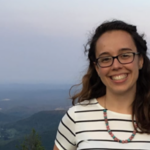
Cora Carmen-Esparza | IIE-GIRE 2021 Fellow
IIE-GIRE Fellow at University of Barcelona, Spain
Home Institution: Virginia Tech
Home Faculty Advisor: Jennifer Munson
Research Project: Developing a 3D In Vitro Model that Mimics Key Invasion-promoting Factors in Glioblastoma
Field of Study: Biomedical Engineering
I am a 3rd year PhD student at the Fralin Biomedical Research Institute through Virginia Tech. At my home institution, I study fluid flow in Glioblastoma, a stage 4 brain cancer. Specifically, I investigate the impact of abnormal flow on blood vessels and tumor cell invasion. I use various techniques to study these dynamics, like Magnetic Resonance Imaging (MRI) paired with Immunofluorescent staining. Outside of work, I enjoy biking, playing board games, and caring for my attention-loving boxer, Chewie. During my study abroad experience in Barcelona, I am excited to learn various models that exist to implement low-oxygen gradients in various diseases, like brain cancer and sleep apnea. Learning techniques to vary local oxygen gradients is crucial to understanding cancer cell invasion in my existing model. Combining and optimizing the models used at my home and host institutions will provide one, holistic tool that incorporates three key factors of cancer cell invasion: stiffness, fluid flow, and gradients of low oxygen. As we unravel cancer cell response in simplified, out-of-organism systems, we become closer to understanding tumor cell behavior in complex systems, like the brain.
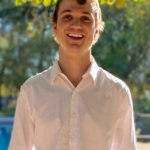
Spencer Dahl | IIE-GIRE 2021 Fellow
IIE-GIRE Fellow at Jülich Forschungszentrum, Germany
Home Institution: UC Davis
Home Faculty Advisor: Ricardo Castro
Research Project: Thermodynamic and Electrochemical Understanding of Nanoscale Lithium Cobalt Oxide in Liquid Electrolyte and Solid State Batteries
Field of Study: Chemical Engineering
Spencer Dahl is a 3rd year PhD Candidate in the Chemical Engineering program at the University of California, Davis and he received his undergraduate degree from Montana State University in Chemical Engineering and Biological Engineering. His research focuses on designing nanoscale cathode materials to improve the efficiency of lithium ion batteries for energy storage. At UC Davis, he studies how to synthesize thermodynamically stable nanomaterials that can maintain their microstructure throughout the life cycle of a battery and uses several strategies to manipulate the interfacial stability of the nanoparticles. His project with Jülich Forschungszentrum will take the fundamental cathode design work done at Davis into an application based electrochemical study. He will study the compatibility of the engineered cathodes with traditional liquid electrolytes and the more novel solid state battery systems during battery operation.
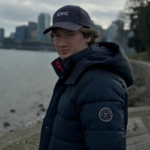
Thomas Kerber | IIE-GIRE 2021 Fellow
IIE-GIRE Fellow at University of Southhampton, UK
Home Institution: Western Michigan University
Home Faculty Advisor: Kristina Lemmer
Research Project: Effect of Emitter-Extractor Alignment on Porous Borosilicate Based Electrosprays
Field of Study: Aerospace Engineering
Thomas Kerber is a mechanical engineering Ph.D student at Western Michigan University. He received his B.S. in Aerospace Engineering from Western Michigan in 2017. Thomas joined ALPE in 2015 and is currently developing the Western Single Emitter Laboratory Electrospray (WeSELE), a porous borosilicate ionic liquid ion source, that he designed as part of his master’s thesis. Thomas has interned in the electric propulsion groups at JPL and AFRL Edwards working on projects like the Magnetically Shielded Miniature (MaSMi) Hall thruster and hall thruster facility effects.
Few studies characterizing effects on performance of emitter to extractor alignment for porously fed ionic liquid electrosprays exist in literature. Assembly of emitters can result in bulk misalignment while fabrication errors may produce singular instances. In either case, it is difficult to examine the consequences on thrust, efficiency, and lifetime using an electrospray array because performance is averaged over many emitters. In designs with large extractor grids and high emitter densities electrostatic forces may also deform the extractor electrode causing regions of misalignment during operation. Support of this project by the IIE-GIRE program will enable the continued development of the Western Single Emitter Laboratory Electrospray (WeSELE) and the novel characterization of emitter to extractor alignment performance effects furthering the start-of-the-art in micro space propulsion.

Kevin Bui | IIE-GIRE 2021 Fellow
IIE-GIRE Fellow at University of Botswana
Home Institution: University of Pennsylvania
Home Faculty Advisor: Michelle Johnson
Research Project: Rehabilitation robotics-based assessment of HIV and stroke impairment in Botswana
Field of Study: Bioengineering
Kevin Bui is a Bioengineering Ph.D. candidate in the Rehabilitation Robotics Lab at the University of Pennsylvania. He studied bioengineering as an undergraduate at Stanford University. His current research is on developing more accessible neurorehabilitation strategies for populations dealing with a variety of cognitive and motor impairments. In Botswana, Kevin will work with collaborators at the University of Botswana and Princess Marina Hospital to test robot-based methods of assessing HIV-associated neurological injury that will serve as the basis for future neurorehabilitation strategies.

Kim Cone | IIE-GIRE 2021 Fellow
IIE-GIRE Fellow at University of Oxford, UK
Home Institution: Colorado School of Mines
Home Faculty Advisor: Kamini Singha
Research Project: Constraining the Composition of The Moon’s Mantle: Numerical and Experimental Modeling of Titanium Behavior in Late-Formed Melts As The Primary Driver For Upper Mantle Mixing
Field of Study: Geological Engineering
Kim Cone is a third-year Ph.D. student in Geology and Geological Engineering. She first earned a B.A. in Psychology at the University of Albany in New York before completing a B.S. in Geology at George Mason University in Virginia. Her graduate work includes a M.S. in Geology from the Colorado School of Mines in Colorado, focusing on volcanic crystal size distributions. She continues graduate work as a Ph.D. student at Mines where she now models the geochemical and mineralogical evolution of the early lunar interior. She also serves on her department’s Diversity, Inclusion, and Access committee to help develop strategies for improving the graduate student experience and to create a more equitable academic environment. In her free time, Kim enjoys playing guitar and woodworking.
The IIE-GIRE Fellowship will be used within a larger context of numerical and experimental approaches for constraining the Moon’s interior composition. Under the supervision of advisor Dr. Richard M. Palin of the University of Oxford and Colorado School of Mines, Kim will begin developing a two-stage lunar model that addresses 1) the initial bottom-up mineralogical sequence of the interior as it began cooling ~4.5 billion years ago, and 2) the immediately following top-down mixing initiated by late-formed dense titanium minerals in the upper mantle. The results of this work are expected to advance our understanding of how deep into the mantle this mixing occurred and how this mixing may have created the heterogeneous source melts reflected in the geochemical signatures of the Apollo mission basalt samples.
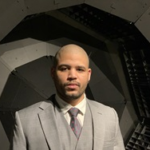
Jean Luis Suazo Betancourt | IIE-GIRE 2021 Fellow
IE-GIRE Fellow at Le Centre National de la Recherche Scientifique (CNRS), France
Home Faculty Advisors: Dr. Mitchell L.R. Walker and Dr. Adam Steinberg
IIE-GIRE Research Project: Direct Statistical Inference and Uncertainty Quantification of Electron Energy Distribution Functions in Electric Propulsion Devices
Field of Study: Laser Diagnostics for Electric Propulsion Applications
Jean Luis received a Bachelor of Science in Aerospace Engineering from the University of Maryland, College Park and a Master of Science in Aerospace Engineering from the Georgia Institute of Technology. During his time as a Ph.D. student, he has contributed to several test campaigns focused on performance characterization of various electric propulsion devices; the most recent of which he led, focusing on the performance characterization of a Hall effect thruster on a novel propellant. His research is centered around transient phenomena in the plasma plumes of Hall effect thrusters. He is developing a high-speed, kHz-level laser Thomson scattering diagnostic system to study these phenomena.
The project sponsored by the IIE-GIRE fellowship program will allow Jean Luis to travel to Le Centre National de la Recherche Scientifique (CNRS) in Orléans France. During his time in France, Jean Luis will work with preeminent plasma physicists and laser diagnosticians in order to collect phased Thomson scattering data from several electric propulsion devices. Jean Luis will develop the computational framework for direct statistical inversion and quantification of uncertainty for the plasma properties of interest using Bayesian statistical inference techniques.

Erin O’Brien | IIE-GIRE 2021 Fellow
IIE-GIRE Fellow at Monash University, Australia
Home Institution: Drexel University
Home Faculty Advisor: Kara Spiller
Research Project: Biomaterials-based Macrophage Cell Therapy to Promote Healing in Chronic Wounds
Field of Study: Biomedical Engineering
Erin O’Brien is a fourth-year PhD candidate in Drexel University’s School of Biomedical Engineering, Science, and Health Systems. She is conducting her graduate research in the Biomaterials and Regenerative Medicine Laboratory under the advisement of Dr. Kara Spiller. Her project seeks to understand the behavior of macrophages, immune cells that regulate healing, and uses these findings to develop biomaterials that direct macrophage behavior. As an IIE-GIRE scholar at Monash University, Erin will use advanced imaging techniques to investigate how biomaterials affect macrophage phenotype and interactions with other immune cell types. The results of this work are expected to lead to the development of biomaterials that can remedy dysfunctional macrophage behavior in chronic wounds.
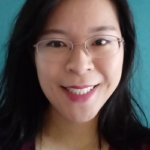
Connie Duong | IIE-GIRE 2021 Fellow
IIE-GIRE Fellow at University of South Hampton
Home Institution: UC Davis
Home Faculty Advisor: Rajeevan Amirtharajah
Research Project: Magnetoelectric Antennas for Wireless Charging of Wearables
Field of Study: Electrical Engineering
Connie’s doctoral research focuses on ambient wireless energy harvesting, which involves using existing wireless energy sources to power low-power wearables or implantable devices. Current methods Connie has explored include using piezoelectric resonators to improve matching networks between the antenna and rectifier and replacing the energy storage element of DC-DC converters with disc resonators.
Through the IIE-GIRE program, Connie aims to develop a magnetoelectric (ME) antenna for wireless energy harvesting that will decrease the overall form factor of a wearable or implantable device’s power module. If successful, this project will provide a practical solution to device miniaturization limitations by applying a concept that has previously only been explored in academic research. The IIE-GIRE scholarship supports Connie’s research by allowing her to explore different methods for wireless energy harvesting while learning from experts at other universities.
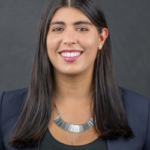
Sabrina Rosa-Ortiz | IIE-GIRE 2021 Fellow
IIE-GIRE Fellow at University of Wollongong, Australia
Home Institution: University of South Florida
Home Faculty Advisor: Arash Takshi
Research Project: Copper Electrodeposition over Triaxial Braided Piezo Fiber Assisted by Hydrogen Evolution for Wearable Technologies
Field of Study: Electrical Engineering
Sabrina M. Rosa-Ortiz is currently a Ph.D. candidate from the Electrical Engineering Department at the University of South Florida (USF) and recipient of several awards such as awarded the Alfred P. Sloan fellowship from the Alfred P. Sloan Foundation University Center of Exemplary Mentoring (UCEM), NSF Florida-Georgia Louis Stokes Alliance for Minority Participation (FGLSAMP) Bridge to Doctorate Fellowship, Intel SHPE Scholar, NASA-Florida Space Consortium Grant, 2020 JoAnn Stromberg Scholarship Recipient , among other awards. Her research is based on the study of Copper Electrodeposition over different substrates promoting the enhancement of copper deposits for the formation and development of flexible interconnections over printed circuit boards and textiles. As part of her research, she was able to develop a patent named “Electrochemical Three-Dimensional Printing and Soldering” in which she studied the hydrogen evolution assisted electroplating as a reliable source to obtain a rapid and lateral copper deposition. As a recipient of the 2021 IIE-GIRE Program, Sabrina will be able to expose herself to international scientific collaboration where she will not only be gaining knowledge and reinventing herself on a professional level but also on a personal level, discovering and being exposed to a new culture.
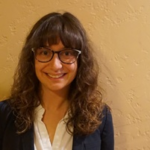
Elizabeth Palmiotti | IIE-GIRE 2021 Fellow
IIE-GIRE Fellow at University of Nantes, France
Home Institution: Colorado School of Mines
Home Faculty Advisor: Angus Rockett
Research Project: Investigation of Metal Halide Induced Recrystallization of Cu(In,Ga)Se2 Films
Field of Study: Material Science and Engineering
Elizabeth Palmiotti is a PhD Candidate at the Colorado School of Mines studying Materials Science in the Metallurgical and Materials Engineering Department. She received her BS from the Colorado School of Mines in Metallurgical and Materials Engineering while conducting biomass and photovoltaic research at the National Renewable Energy Laboratory. Her PhD research is focused on developing a method to reduce processing times and costs attributed to the deposition of high-efficiency chalcogenide thin-film photovoltaic absorber layers. More specifically, she is working to develop a kinetic and thermodynamic understanding of recrystallizing high-rate, low-temperature deposited CIGS films using metal halide vapor treatments.
At the University of Nantes I will work with Dr. Nicolas Barreau and his group to further study the kinetics and thermodynamics of recrystallizing high-rate, low-temperature deposited CIGS thin-films using characterization techniques unique to their facilities. Additionally, I will use their co-evaporation and device fabrication facilities to prepare samples for study at Nantes and upon return to Mines. Studying the behavior of device integrated recrystallized films will be crucial to understanding how to make CIGS devices a more cost-effective technology.
The IIE-GIRE program is supporting my five months of research at the University of Nantes in France. This allows me to spend the appropriate time needed to learn the techniques needed to co-evaporate films, fabricate devices, and study them through new forms of characterization. Conducting this work will offer the opportunity to strengthen relations with the Barreau group, learn and study new techniques, and strengthen my thesis research and contributions to this field.
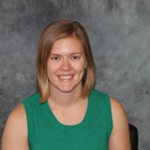
Kaleigh Yost | IIE-GIRE 2021 Fellow
IIE-GIRE Fellow at University of Auckland, New Zealand
Home Institution: Virginia Tech
Home Faculty Advisor: Russell Green
Research Project: Liquefaction Damage Assessment at Highly Interlayered Soil Sites
Field of Study: Civil Engineering
Kaleigh Yost is a third year PhD student in the civil engineering department at Virginia Tech. She holds a Master of Science in Civil Engineering from The University of Texas at Austin and a Bachelor of Science in Civil Engineering from the University of Notre Dame. Her research is in the field of geotechnical earthquake engineering, specifically, on the phenomenon in which soil loses its strength and stiffness during earthquake shaking (known as liquefaction). Kaleigh uses novel site characterization techniques, numerical modeling, and data analysis methods to advance the understanding of soil liquefaction in highly interlayered soil profiles.
Her project will focus on a suite of liquefaction case history sites in New Zealand with highly interlayered soil profiles. She will quantify and document the sites’ geologic settings, stratigraphies, depositional environments, and possible geomorphological controls on liquefaction. With the support of the IIE-GIRE program, Kaleigh will be able to perform this research in-person and supplement it with laboratory and field testing. Results from the project will help the geotechnical engineering field redefine their understanding of parameters used to predict the occurrence and severity of liquefaction during earthquakes.
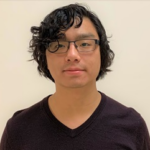
Richard Chiang | IIE-GIRE 2021 Fellow
IIE-GIRE Fellow at Kyoto University
Home Institution: University of Cincinnati
Home Faculty Advisor: Vijay Vasudevan
Research Project: A Study on the Plastic Deformation Behavior of Single Crystal FCC-Structured CoCuMnNi High Entropy Alloy (HEA) using Micropillar Compression
Field of Study: Material Science and Engineering
Richard Chiang is a Ph.D. candidate in the Department of Mechanical and Materials Engineering at the University of Cincinnati. He holds a B.S. in Material Science and Engineering from The Ohio State University. Under the guidance of Dr. Vijay K. Vasudevan, his dissertation primarily focuses on investigating the effects of surface treatments on the repair and mitigation of degradation in structural materials used in nuclear applications. His research aims to develop methods of extending the material lifetime of vital components whose failures can pose danger to man or environment. Currently, his research is exploring means to combat the degradation observed in stainless steel canisters used in dry cask storage systems to store spent nuclear fuel.Under the sponsorship of IIE-GIRE, Richard intends to expand his research interest into the field of high entropy alloys (HEAs). HEAs were first conceptualized in 2004 and have been gaining traction in the field of material science and engineering as a potential breakthrough to alloy design in fabricating materials with a diverse range of attractive properties in unique combinations. His project at Kyoto University under Dr. Inui Haruyuki will concentrate on investigating the deformation behavior of Co10Cu20Mn30Ni40, a new single phase non-equiatomic FCC-structured HEA first developed in 2020. The results of this work will expand the understanding of HEAs as well as provide a pathway for future research into this field. Richard plans to continue his investigation of these alloys after his project tenure at Kyoto University is over.